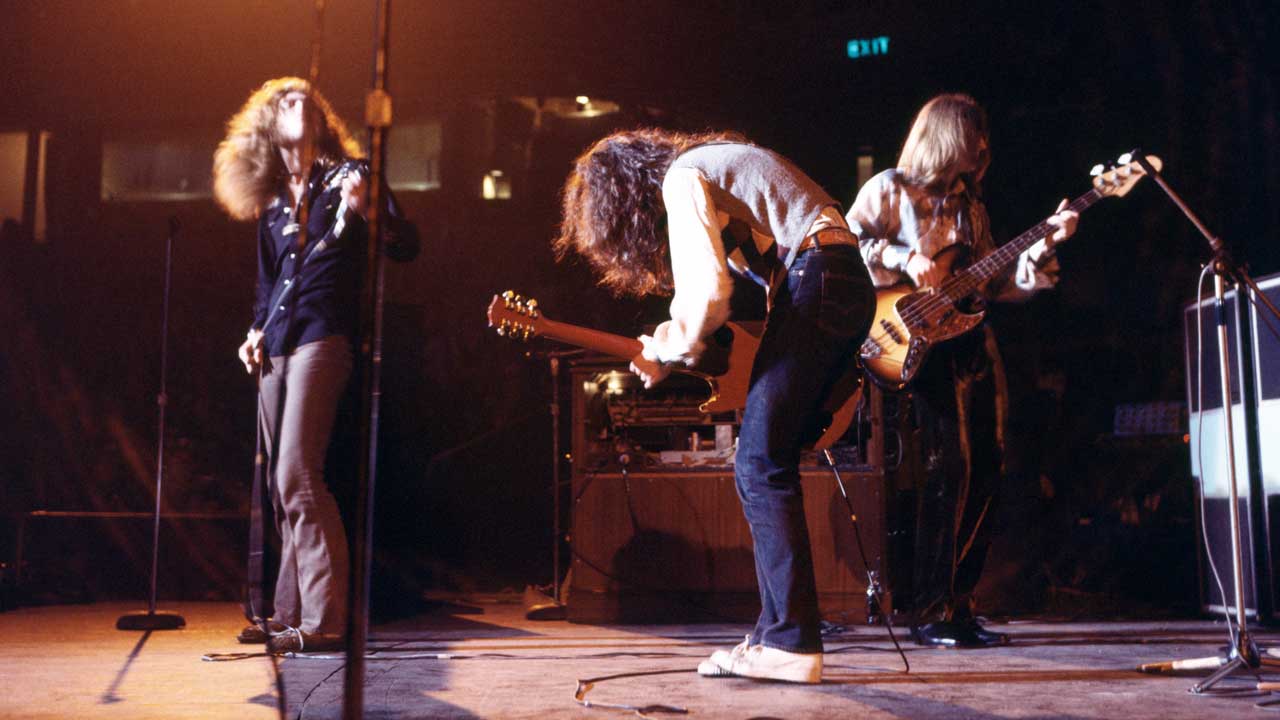The first ever officially sanctioned film about the group, the recently-released Becoming Led Zeppelin has got everybody talking. In its two-hour duration, it covers the early stories of all four band members and their coming together as Led Zeppelin, reflecting what became an instant success story with those now legendary first two albums.
Do not hope for scandalous tales of black magic, groupies and mud sharks, but prepare to hear what happened from the mouths of the four band members, the words of drummer John Bonham (who died in 1980) coming from interviews sourced by director Bernard MacMahon and co-writer/ producer Allison McGourty.
As the movie was about to go public for the first time, following a Los Angeles premiere attended by the likes of Gene Simmons, The Black Crowes, Anthrax’s Scott Ian and many more, Classic Rock hooked up with the pair to hear the details of its complicated birth.

Let’s start with the most obvious question. What were the biggest difficulties you faced in making Becoming Led Zeppelin?
Bernard MacMahon: The hardest thing was tracking down archive footage. For an act of this magnitude there was very, very little pre-band material. For example, no photographs of John Paul Jones as a child exist. The are no pictures of his parents. It helped very much that we had made a series of films called American Epic that was about the music that had influenced Zeppelin, which Jimmy Page and Robert Plant loved. This film picks up where American Epic left off.
What’s the story of the John Bonham interview?
MacMahon: It’s interviews – plural. There are three separate ones. The main one is John and Robert Plant in Australia in 1971. That took a lot of locating. The band did so few interviews back then – especially John – so we compiled a list of every single journalist who spoke to them at that point. We refused to use a cassette recorder on a table with loads of background noise. This wasn’t The Watergate Tapes, this is the theatre!
We found what we were looking for at the University Of Canberra, and it’s absolutely perfect for us because the journalist would say things like: ‘That’s enough from you, Robert. Now let John speak’. There’s a lovely moment where John talks about each of his bandmates and what he feels about them.
And that is among the film’s joys. The camera captures everything – from the various responses to Bonzo’s individual comments to John Paul Jones’ cheeky sense of humour. The look on Jimmy Page’s face at seeing the Bath footage from ’69 for the first time is wonderful.
Allison McGourty: Thanks so much. Because the band has never told its story before, the only thing that’s out there is rumours and we wanted it to be legacy-defining.
MacMahon: We wanted the audience to experience what we did [making the film]. We sought to make a movie of how Led Zeppelin began that will stand up in fifty or sixty years. It’s for generations ahead of now. It’s how they were meant to be heard.
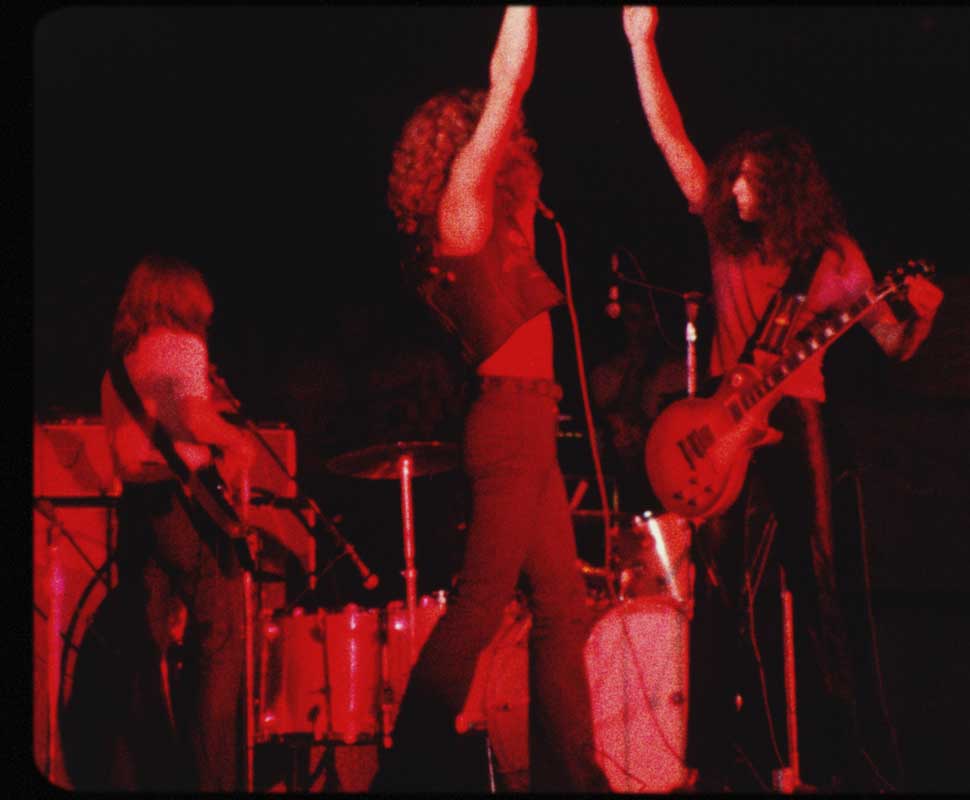
Everyone knows that Robert can be a bit of a curmudgeon regarding Zep, but he’s warm and enthusiastic here.
MacMahon: That’s down to Allison. She interviewed Robert.
McGourty [who is Scottish]: I’m from the North, I’m a Celt. Maybe that helped. When Robert agreed to do it, he came with an open heart. He wasn’t the easiest to get on board. Jimmy and John Paul Jones agreed after the first meeting, but it took Robert four to sign up.
MacMahon: It helped that Robert was a big fan of our American Epic films, and when he decided to do it he was really, really open and unguarded. He didn’t hold back. He just told the story from the heart, with no artifice or self-consciousness. I’ve never seen musicians talk about themselves that way before.
Why exclude the usual array of external talking heads?
MacMahon: That was a conscious thing. We want the viewer to feel like they’ve arrived in this Tudor mansion and they are sitting down with them for two hours as they tell their story.
McGourty: We did retrace their steps in the West Midlands. We went to John Bonham and Robert Plant’s schools. We visited all of their houses. That place inspired some of Robert’s lyrics, the Tolkien-esque ones. You could feel that in the landscapes and the forests.
MacMahon: We smelled the air. I wanted the film to be as though you were a nephew chatting with in the drawing room with them over Christmas dinner. That’s what we wanted with the music, too – it had to place you there.
The footage of Jimmy thumbing through his small pocket diary of sessions for other artists undertaken before the start of Led Zeppelin is another little masterstroke of detail.
MacMahon: When we first met Jimmy to pitch the movie, he arrived carrying these plastic bags. We didn’t know what was in them. During the presentation a certain date was mentioned and he asked, ‘Are you sure that’s correct?’ and proceeded to produce the diaries of all his session work. It was lovely that he brought them along.
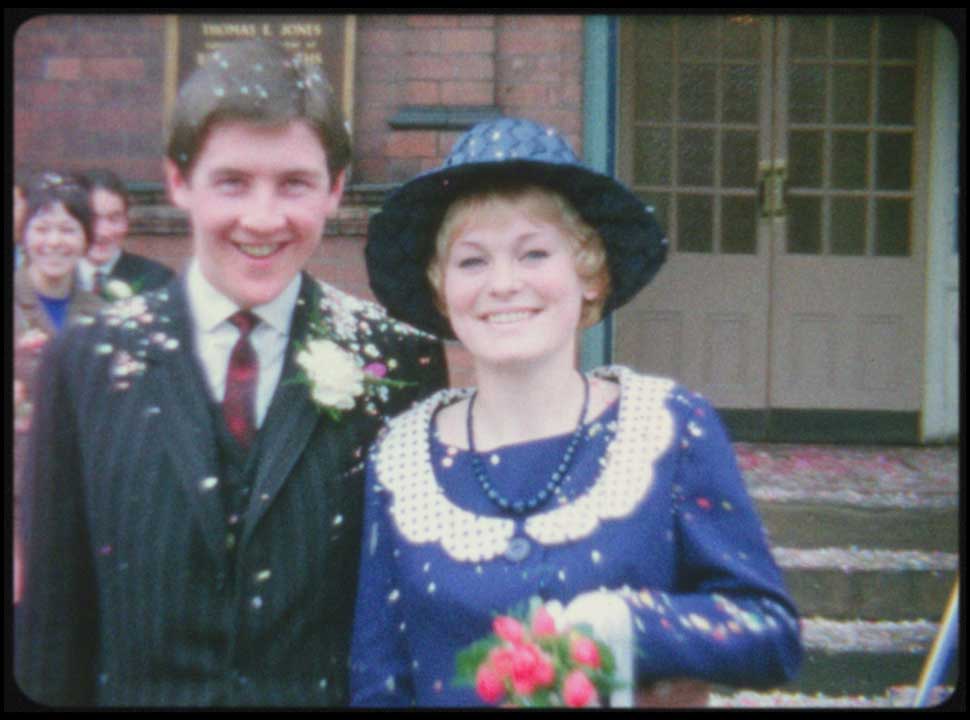
The shot of the grimacing audience members at a gig in Stockholm with fingers in their ears, protesting the volume was another winner. [Both roar with laughter].
MacMahon: It’s all worked out like a musical because as those people are doing that, what song is playing? Communication Breakdown.
In the cinema, the music screams out of the screen like a jumbo jet.
MacMahon: Thank you for saying that. We have not tampered with the music; we are giving it to you in the purest possible sense. To do that a number of key decisions were made. Firstly, we found the original quarter-inch tapes and the original vinyl lacquer versions of those albums [Led Zeppelin and Led Zeppelin II]. They have a property that’s unique, and that’s what excited them and sent them stratospheric.
We wanted to give you what the public heard in 1969 but delivered through the best system on planet Earth. You’re hearing those songs sounding the best they can possibly be.
The live footage, too, is little short of amazing. At the show from the Royal Albert Hall the viewer almost feels as though they’re onstage with the group.
MacMahon: You’re getting all of the original elements, but when there were deficiencies in the live recordings we worked with the EQs on those. The audience can relive what it was like being there. Those recordings were masterful and you’re getting it in the purest possible form. We haven’t adjusted it for the taste of modern kids. This is how it’s meant to be heard.
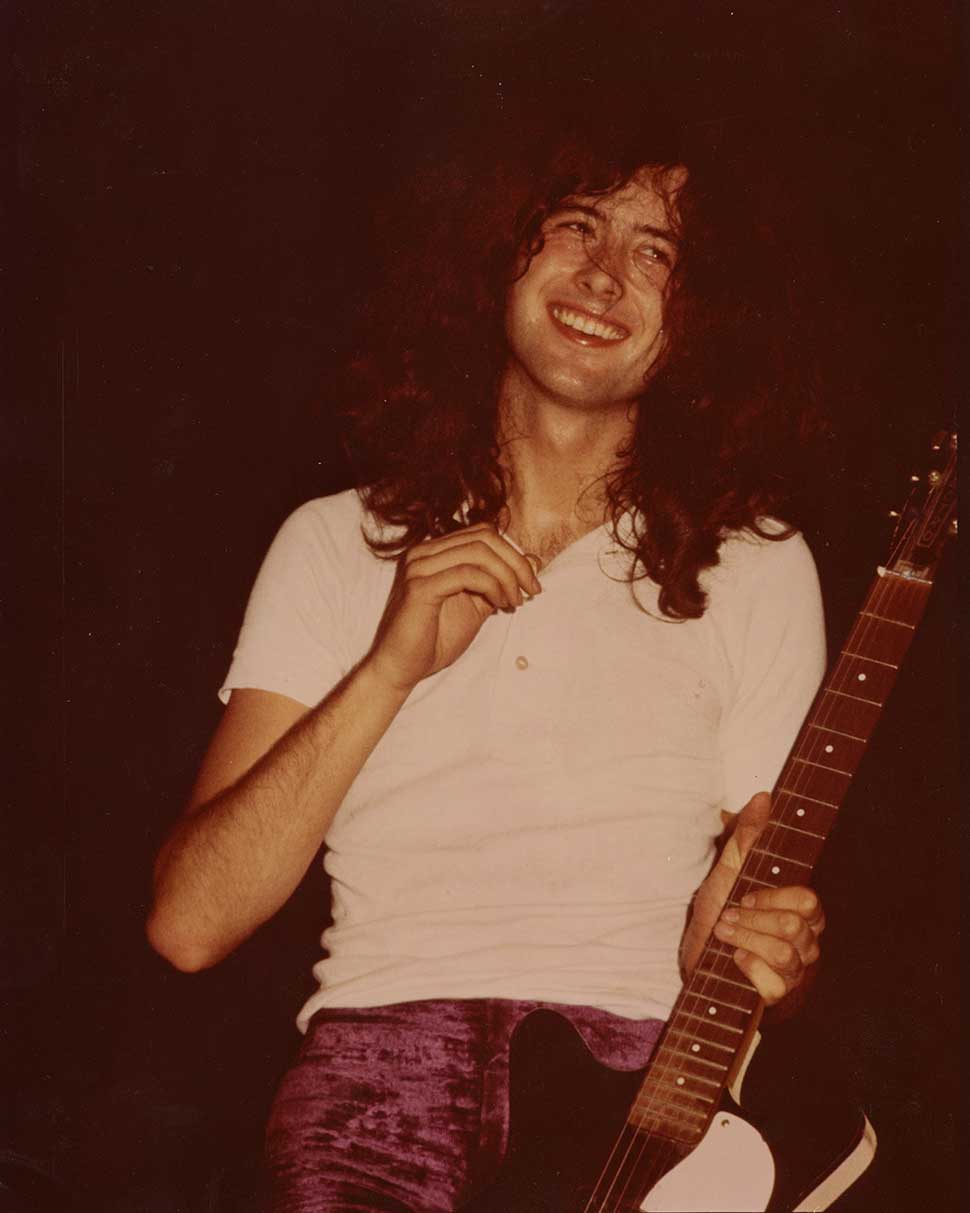
How hands-on were the band in everything?
McGourty: At the very first meeting we insisted it had to be an independent film, and they knew that we would have full editorial control. They didn’t try to exert any influence whatsoever.
MacMahon: They didn’t try to change a frame of the film. That’s unusual for a band of their magnitude. As far as I’m aware, any other band as big as Led Zeppelin would insist upon controlling that stuff. They asked: ‘What do you want the movie to be?’ and they replied: ‘Okay, make it’.
I don’t know whether it was because they liked American Epic so much, but it was incredible to be allowed to step into that special circle that nobody gets into. I think it tells you a lot about Led Zeppelin and why they were so amazing at what they did, because they could always embrace unusual situations.
It’s been 18 years since the reunion gig at the O2 Arena and 45 since the group’s last gig with Bonzo. In your opinions could Led Zeppelin, or a band like them, still triumph in the same way in 2025?
McGourty: Could they be successful now? Of course they could!
MacMahon: Anything is possible with Led Zeppelin. And yet the great thing about them is, like this film, nobody ever thought it would happen. You can never predict anything to do with them. The rest of those acts… the same isn’t true. That’s why I love them. Who on earth would have thought that O2 show would happen? But it did.
When I spoke to the guy that has run their website for years, a lovely fella called Sam Rapallo, and I told him that we had all of these interviews in the can he could not believe it: ‘What? You’ve spoken to all of them? They’ve all done it?’ He’s worked with them for more than thirty years, and that’s why I say you can never predict anything about Led Zeppelin.
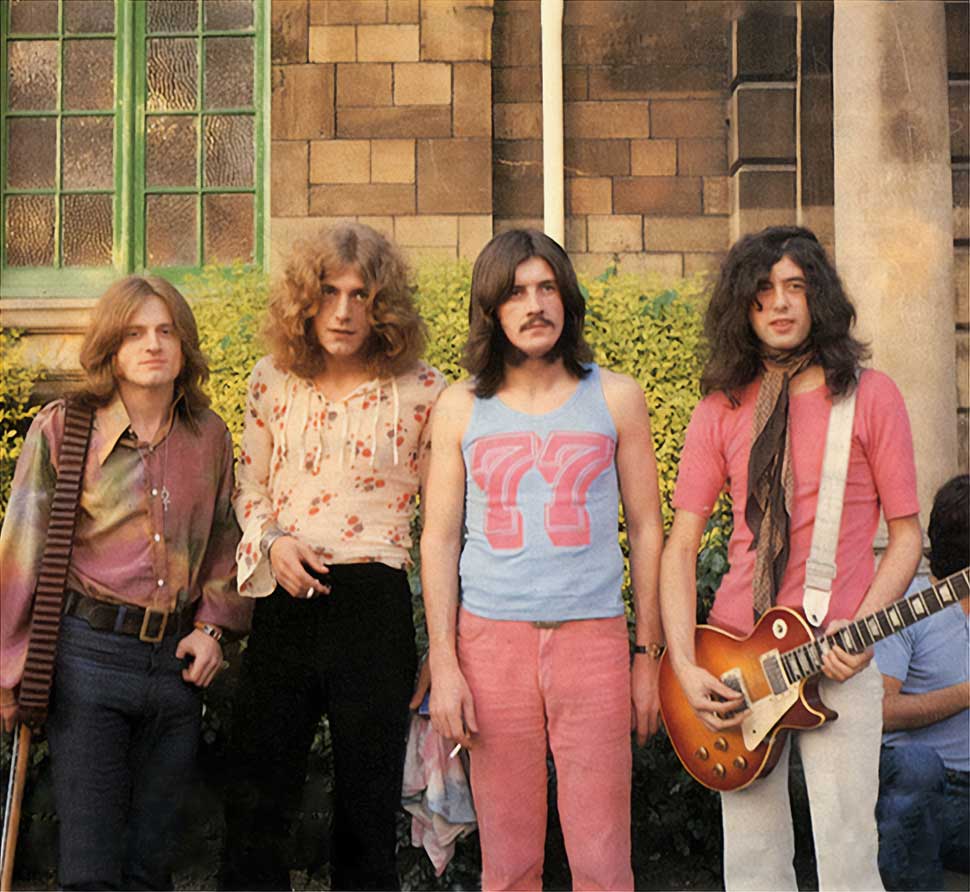
And finally, we’ve had Becoming Led Zeppelin… in the future can we expect a Being Led Zeppelin, and further sequels? [The question is met with a mix of amusement and horror].
MacMahon: Yeah. If we have another five years to kill. But if the band were even agreeable to telling the next part of that, I would have to think long and hard about the idea.
Seriously?
MacMahon: We haven’t given the matter any thought, not unless you consider finding a really cool clip [from later on in the band’s tale] and going: ‘Oh my god, this is mind-blowing’. There were a couple of those that we left on the shelf.
McGourty: Films like this one are very hard to make.
MacMahon: The scale of the workload is so difficult to describe. It’s like making War And Peace but cutting out all of the words from newspapers, like a ransom note.
McGourty: Please encourage your readers to see the film at a cinema.
MacMahon: It’s meant to be watched in a crowd. Just like a Zeppelin gig.
Becoming Led Zeppelin is in cinemas now, and is available to watch on Apple TV and Amazon Prime.
